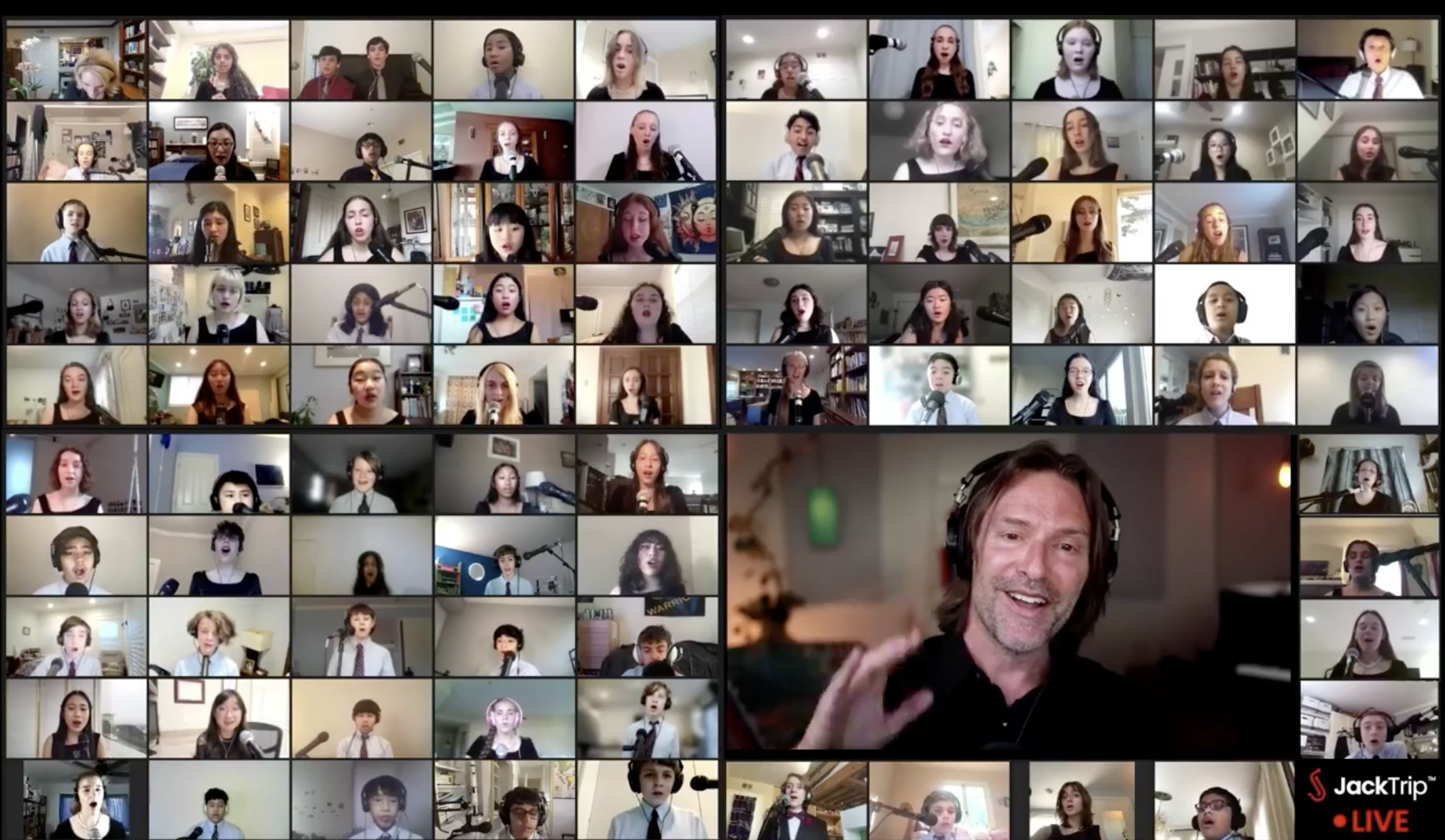The camera rolls and two young singers take the stage, an act of second nature molded by years of repetition. Only this performance is unlike any before, with the stage set at home and the audience remotely enjoying the show around the world. The musicians, though miles apart due to COVID-19 restrictions, remain connected through their passion for music and JackTrip Labs’ open source software.
This summer, Stanford filmmaker and co-producer Annie Munger MFA ’20 worked with Silicon Valley startup Jacktrip Labs and Grammy Award winning conductor and composer Eric Whitacre to create a documentary about the Jacktrip software and its impacts: “Sing Gently: Behind the Scenes with Jacktrip and Eric Whitacre.”
Released on YouTube on Aug. 25, the documentary highlights one special concert featuring three California youth choruses, the technology behind the performance and the profound human connections cultivated during the learning process. The three choruses featured include the Ragazzi Boys’ Chorus, Southern California Girls’ Chorus and San Francisco Girls’ Chorus.
In the midst of the isolation and disconnection of the pandemic, JackTrip sought to connect musicians and other artists, especially young people, by eliminating audio obstacles that usually characterize traditional video conferencing platforms.
“We have spent a lot of time over the past year helping musicians learn and use JackTrip for the first time. It’s hard to explain how fulfilling it is to see faces light up or see people brought to laughter or tears, especially when they are children,” said CEO and co-founder of JackTrip Labs Mike Dickey.
JackTrip, a 1990s software developed by music professor Chris Chafe D.M.A. ’83, ensures high quality real-time sound streaming over the internet. When the COVID-19 pandemic hit, developers modified the software so that it could work effectively through home networks for virtual performances.
After being approached by Jacktrip with the idea of making a documentary, Munger was inspired to join the project because she was impressed by the innovative technology and its real world applications.
“I frankly just thought it was really cool. I think that we all in the past year have had our issues with certain video conferencing platforms, the lag and the frustration,” Munger said. “JackTrip was this exciting technology that eliminated a lot of the issues that even if not as a musician people personally have had with interfacing and trying to be creative over the past year.”
Much of the documentary focuses on this key issue of latency and how Jacktrip can help. As Dickey explains, latency is the time delay that accompanies sound traveling from one location to another, which often makes it difficult for musicians to collaborate on traditional video conferencing platforms.
The film demonstrates latency issues with March 2020 practice footage of the Ragazzi Boys’ Chorus. Before using Jacktrip, the chorus struggles to virtually find their timing, making it difficult for the group to sing together.
“We love making music together in person, so it was hard to say goodbye,” said Ragazzi Boys’ Chorus Artistic and Executive Director Kent Jue on the struggles of rehearsing virtually before using Jacktrip. “They were not singing together and we know that on the Zoom platform it doesn’t allow the audio for multiple people to sing or speak at the same time so it became a very one dimensional type of teaching.”
With Jacktrip, the musicians could finally feasibly practice and perform together. But, as shown in the documentary, there were still challenges for the young singers. Talinn, a member of the Ragazzi Boys’ Chorus, explains to the film’s viewers that he disliked “not having the social interaction and not being able to laugh and have those side conversations during class.”
Munger found great pleasure making this documentary, saying that she enjoyed working with so many dynamic, thoughtful and unique individuals.
“My favorite part about documentary filmmaking is connecting with really cool people that I wouldn’t otherwise meet in my daily life,” Munger said.
After a challenging year of struggle and uncertainty, Dickey and the Jacktrip team hope that those viewing the film see their story as a sign of hope.
“This has been a hard year for everyone, and we knew from these emotional experiences that our work really mattered,” Dickey said. “We knew that bringing three choirs to sing together this spring would be something very special.”
